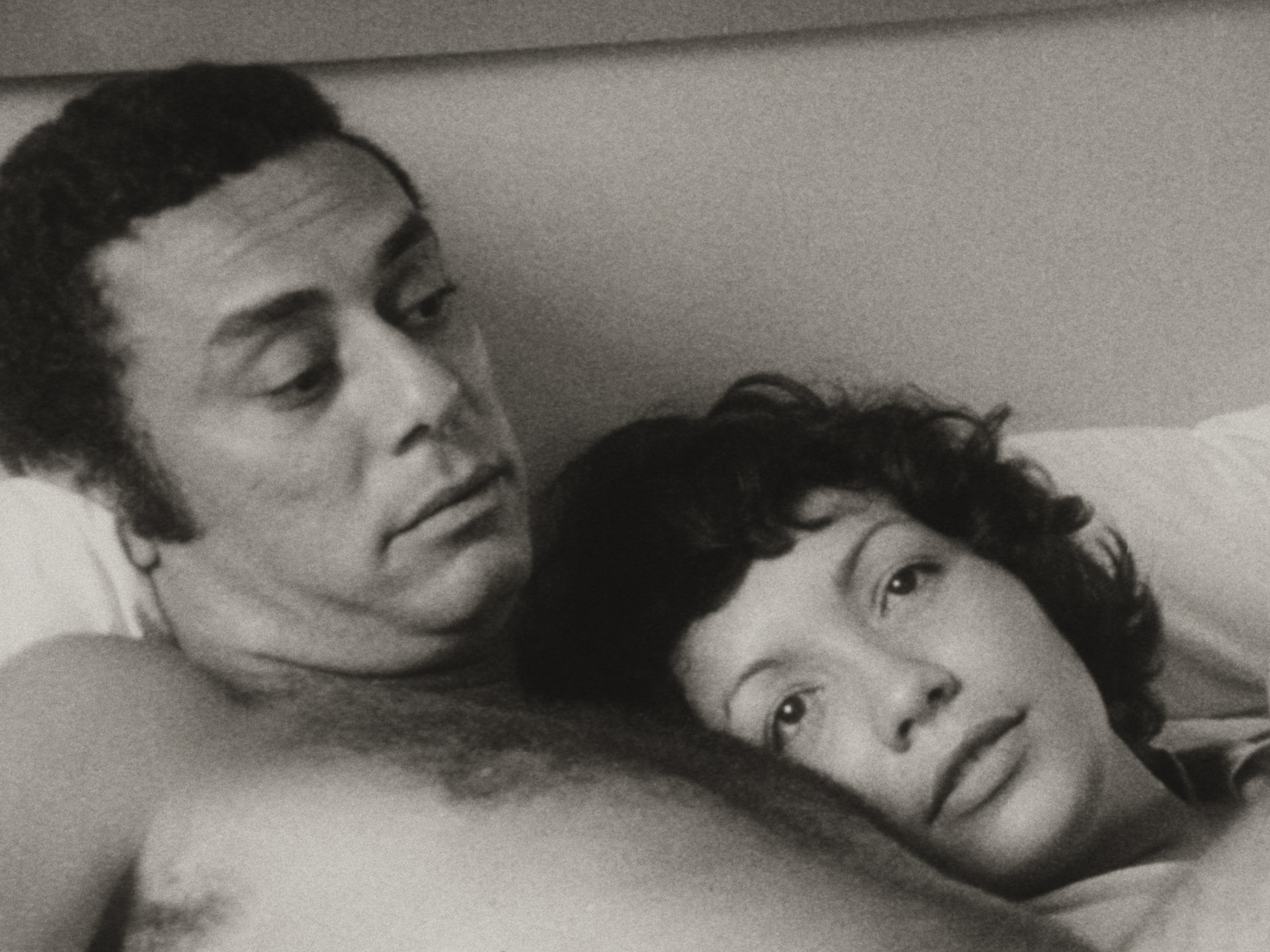
Trained as a musician and ethnologist, Sara Gómez’s docu-romance-drama was the first Cuban feature film directed by a woman. Through the prism of a new couple, teacher Yolanda and factory worker Mario, De cierta manera examines the complexities of marginalised lives in 1970s Cuba.
EN
Pelicula de largometraje sobre algunos personajes reales y otros de ficción
Feature film about real people and some fictitious ones
Opening credits1
“De cierta manera achieves a special power. Sometimes it is obviously documentary, and at other moments it is obviously fiction, but there are times when you don't know. Perhaps this is its greatest strength and its greatest charm. Sara used cinema to raise questions for herself – to investigate reality – but she was also interested in creating answers to these questions through the process of making a film. This is what she did in De cierta manera. From the direct testimony to the fiction, she allowed us to understand things that are much deeper than mere appearances reveal.”
Tomás Gutiérrez Alea (Memories of Underdevelopment, 1968) who supervised the completion of the film after Sara Gómez’s premature death at the age of thirty-one2
“De cierta manera seems a bit careless, a little awkward, almost as if it had been let loose on its own, but it also succeeds in penetrating our reality to an uncommon degree, producing an impact which is somehow charged with poetry. I think that it is there above all that our reality is shaped. I see this film as a kind of model; I think it is quite extraordinary.”
Tomás Gutiérrez Alea3
“Sara Gómez provocatively combines fiction sequences with documentary footage, and her playful use of form is both startling and purposeful. The film begins abruptly, as if in midscene, with a documentarylike record of a workers’ meeting; the credits are followed by an actual documentary segment on housing development in the early 60s, complete with didactic voice-over. Sections that seem to be dramatic are later revealed to be documentary, while other apparently dramatic scenes are interrupted by discursive sequences. The film’s form questions itself, as do the characters.”
Fred Camper4
“A work of formal radicality and political wisdom, De cierta manera moves far beyond the couple’s immediate surroundings, as Sara Gómez’s restless curiosity expands outward in all directions at once, leaving fiction behind to embrace the essay and the documentary and taking real people along for the ride: Afro-Cuban traditions, post-Revolution social policy, the biography of a boxer turned musician, urban development, the shadow cast by colonialism, the roots of machismo. Story and context are insufficient concepts anyway when they’re as hopelessly intertwined as here: the love between two people born out of a remarkable director’s expression of love for Cuba, community, and cinema itself, ambivalent, hopeful, assured.”
James Lattimer5
- 1The credits list names separately under the headings ‘actors’ (actores) and ‘real people’ (personajes reales).
- 2Cited in Susan Fanshel, “De cierta manera,” A Decade of Cuban Documentary Film 1972-1982 (New York: Young Filmmakers Foundation), 33.
- 3Julianne Burton, “Individual fulfillment and collective achievement: An interview with Tomas Gutierrez Alea,” Cineaste, 8 (1), 1977, 10 & 14.
- 4Fred Camper, “Critic’s Choice: One Way or Another,” Chicago Reader, 10 March 2000.
- 5James Lattimer, “Historiography - Remeasuring the revolution: De cierta manera,” Viennale, October 2021.

